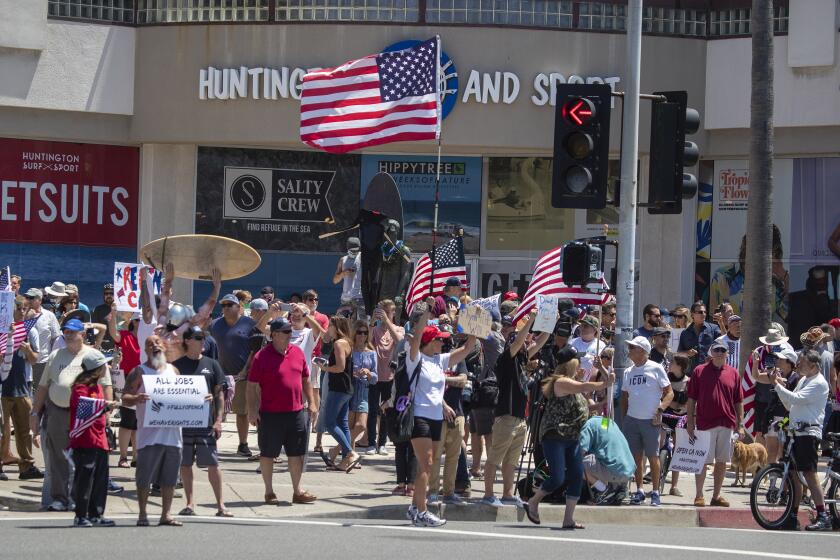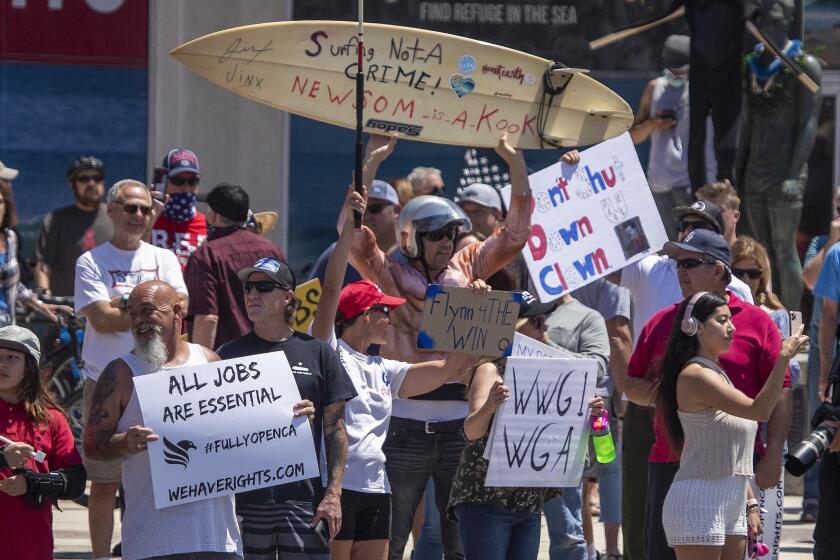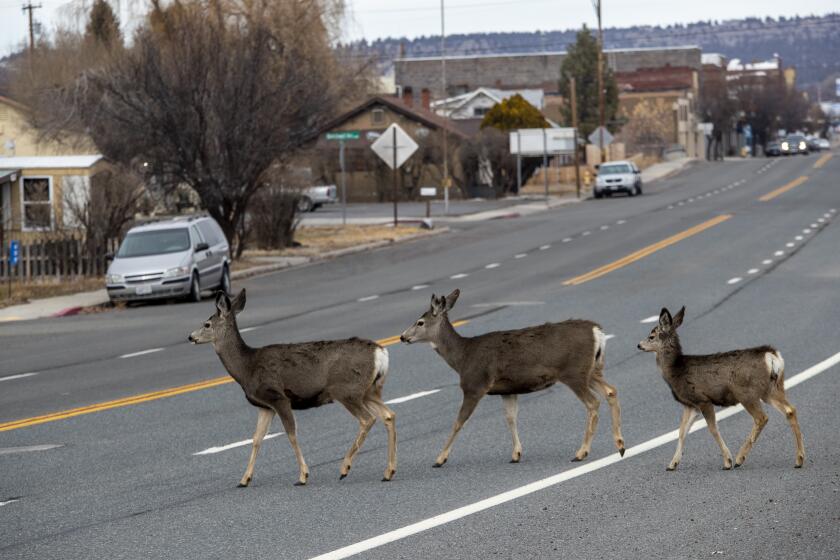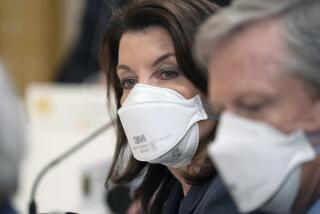As weather warms amid coronavirus outbreak, states face new challenges
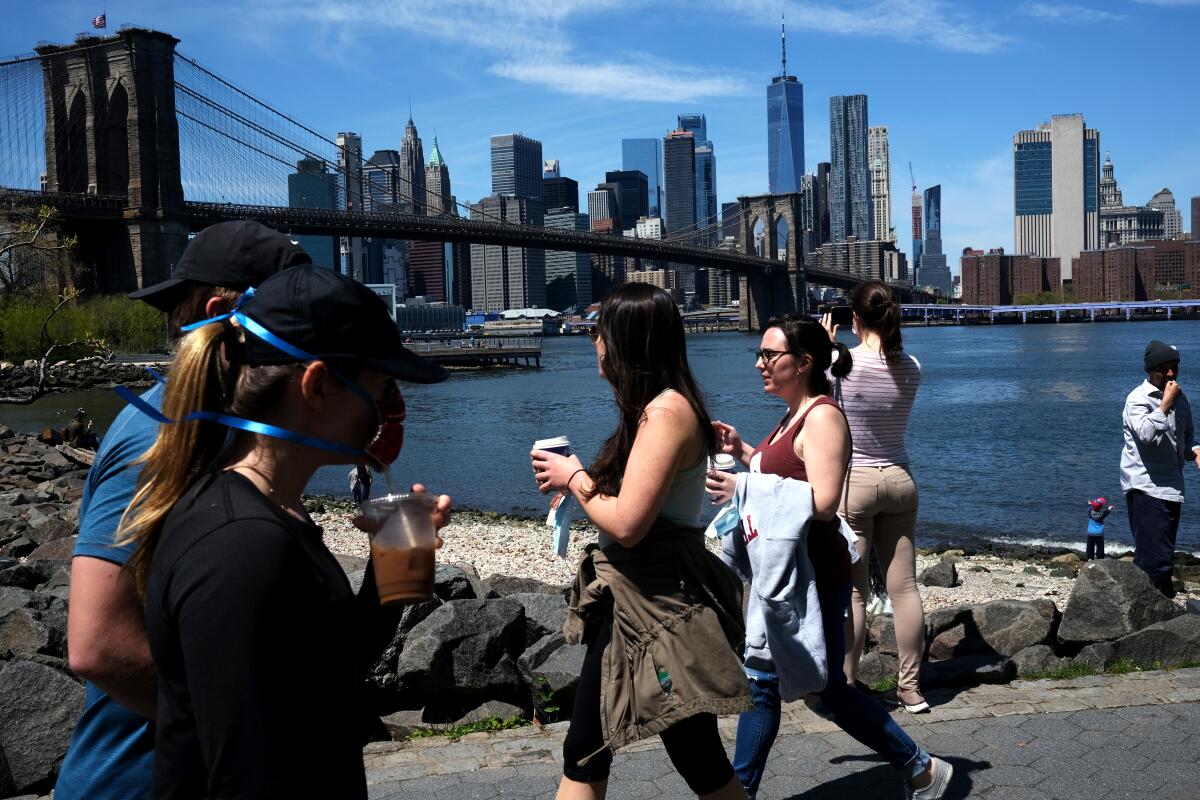
With warmer weather arriving amid the COVID-19 pandemic, some state and local government officials are ordering enhanced safety measures as more people return to the streets.
In New York, with temperatures above 70 degrees expected, Gov. Andrew Cuomo said the state would distribute 7 million more cloth masks to lower-income families, nursing home residents and other vulnerable people.
He added that in New York City, the transit authority would disinfect subway cars every 24 hours and that stations and commuter train cars would also be cleaned on a daily basis.
“This has never been done before, and it’s an extraordinary effort,” Cuomo said at a news conference Saturday. “The riding public deserves this. Essential workers deserve this. Transit workers deserve this.”
Cuomo said he understands that New Yorkers would face difficulty remaining indoors all day as the weather warms.
“You can’t stay indoors all the time. But just respect the social distancing, and wear the masks. And New Yorkers are doing it,” the governor said.
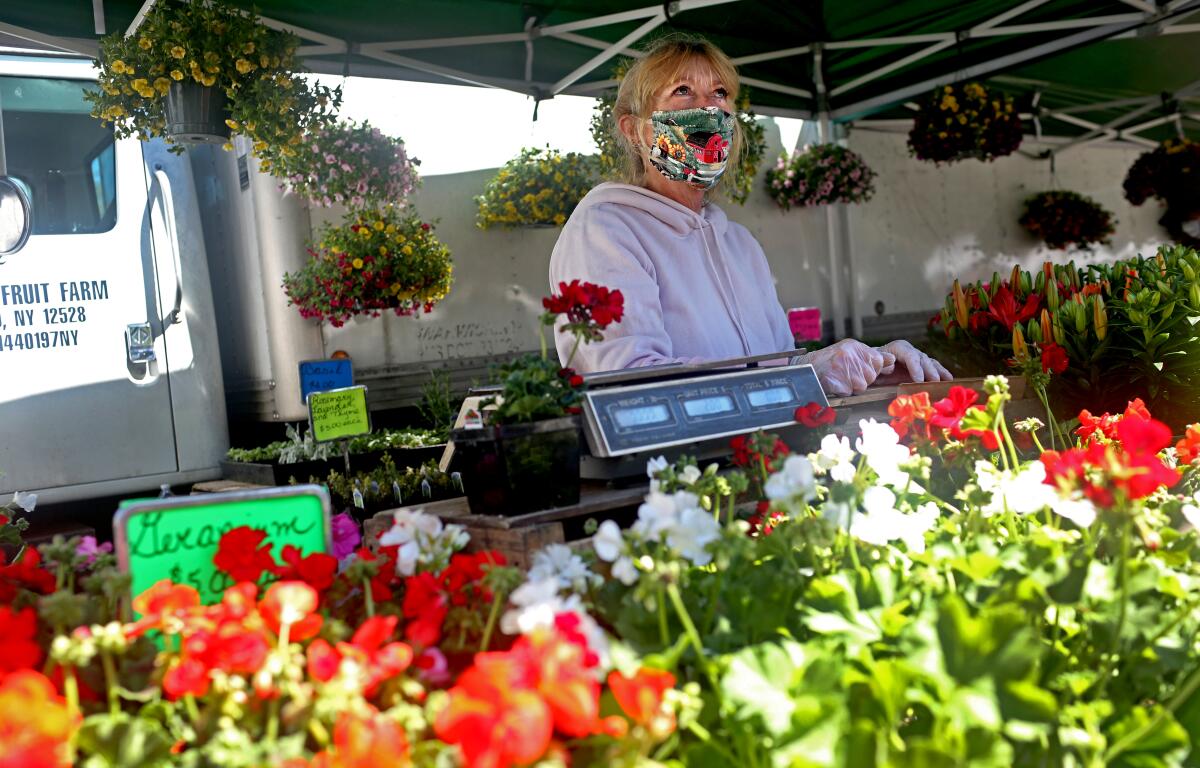
New York City Mayor Bill de Blasio said Friday that, starting this week, the city would begin to open 40 miles of streets to pedestrians.
“The open streets are going to be another way to help encourage social distancing, because the warmer weather tells us we’re going to have a new challenge,” De Blasio told reporters.
The daily numbers of confirmed coronavirus cases and deaths in New York, the state hit hardest by the viral outbreak, have remained relatively steady in the last several days.
New York had 299 new deaths in a 24-hour period ending Friday, up from 289 the day before, Cuomo said. He added that around 900 new cases are being confirmed each day.
Meanwhile, in states that have already begun to reopen their economies, social distancing issues can only increase.
In New Jersey, where coronavirus deaths climbed to at least 7,742, residents are being allowed to venture out to golf courses and state parks. Gov. Phil Murphy emphasized that social distancing will be required for the foreseeable future. During a news conference Saturday, Murphy noted that one positive development is that coronavirus-related hospitalizations dropped by more than 1,000 over the last week.
California Gov. Gavin Newsom is facing growing impatience with stay-at-home orders meant to slow the spread of the novel coronavirus, and a legal showdown looms over his closure of Orange County beaches.
The warmer weather is coming at a time when a growing number of states have loosened coronavirus restrictions, allowing people to flock out to movie theaters, restaurants and gyms.
On Friday, Texas, Utah and Maine joined states including Georgia that have allowed some businesses to reopen, marking a shift in the nation’s response to the pandemic.
The loosening of restrictions, with the encouragement of President Trump, goes against the advice of public health experts and comes as the number of coronavirus cases continues to grow.
In recent days, the national total topped the 1-million mark. On Saturday, the death toll from COVID-19, the illness caused by the virus, passed 66,300, according to Johns Hopkins University.
Over the next several days and weeks, more states are expected to ease stay-at-home orders and reopen portions of their economies.
During a meeting with community leaders and small-business owners in an Orlando hair salon Saturday, Florida Gov. Ron DeSantis said reopening hair salons and barbershops in the state is “not a matter of if, but when.”
In Nebraska, where coronavirus cases have not slowed, Gov. Pete Ricketts said Friday that beginning Monday the state would begin to ease rules.
Nebraskans will be able to dine in restaurants that follow rules of not permitting more than 50% of normal capacity. Residents may also visit salons and tattoo and massage parlors. Ricketts said people could attend houses of worship if they wear masks and stay six feet apart.
Yes, there are significant health risks associated with lockdown. But returning to normal life too soon and rushing herd immunity would be even worse.
Arkansas Gov. Asa Hutchinson said Friday that gyms and other fitness centers could reopen and that restaurants would soon be allowed to let customers dine inside as long as they aren’t filled beyond one-third of their normal capacity.
Frustrated with rising jobless rates and grim financial forecasts as shelter-in-place orders remain in place, small groups of protesters have held rallies in California, Wisconsin and Arizona and elsewhere in recent weeks. But on Saturday, the debate over whether to ease restrictions or expand stay-at-home orders intensified as protesters held rallies in several states.
Those in favor of reopening say that keeping businesses closed will cause economic conditions to worsen further. Those advocating a slow and methodological easing of restrictions say that reopening too soon could result in a second surge of deadly illnesses, which will hurt the economy more in the long run as businesses are forced to close again.
Despite rainy weather, protesters in Salem, Ore., took to the streets Saturday to demand that Gov. Kate Brown end the state’s stay-at-home order.
Oregon is one of five Western states working together to determine when to lift stay-at-home orders and reopen the economy. Brown joined the alliance, known as the Western States Pact, on April 13. Other states in this group are California, Washington, Colorado and Nevada.
Protests are taking place even in states that have already eased restrictions or plan to do so in May — underscoring just how heated and divided Americans are on the issue.
Modoc County was the first California county to reopen amid the coronavirus outbreak even as Gov. Gavin Newsom’s stay-at-home order remains in effect.
In Frankfort, Ky., hundreds of people rallied outside the Capitol building on Saturday to pressure Gov. Andy Beshear to ease the state’s coronavirus-related restrictions even though the governor had announced Wednesday that businesses would begin reopening this month.
Several state lawmakers and community leaders showed up in support. Videos from the demonstration posted on social media showed some protesters decked out in militia gear, while others held signs that read “Free Kentucky” and “Let freedom ring.” Some waved American and Confederate flags.
On Saturday, one day after people in Maine were allowed to stroll into barbershops, hair salons and attend drive-in movies — hundreds of demonstrators gathered outside the Blaine House, the official residence of the governor in Augusta, to protest Gov. Janet Mills’ pace of easing restrictions.
On Tuesday, when Mills announced her plan to reopen Maine’s economy, Republican state Sen. Robert Foley wrote a letter to the governor urging her to ease restrictions sooner.
Mills addressed such concerns during a news conference Friday:
“We know the virus plays no favorites. It doesn’t take political sides,” she said. “It is an equal-opportunity destroyer.”
More to Read
Sign up for Essential California
The most important California stories and recommendations in your inbox every morning.
You may occasionally receive promotional content from the Los Angeles Times.
